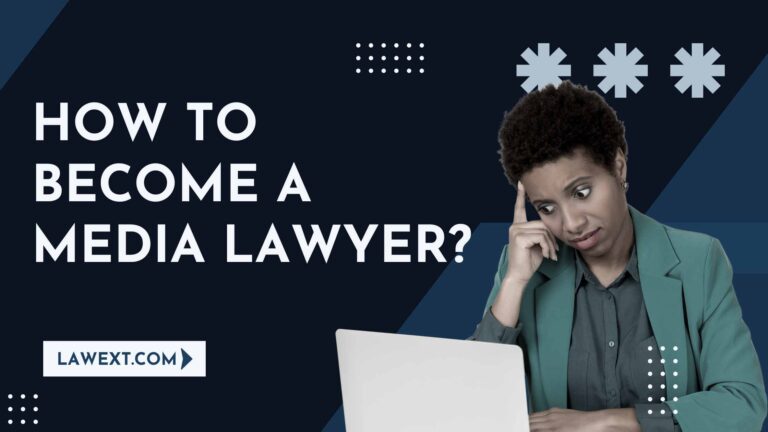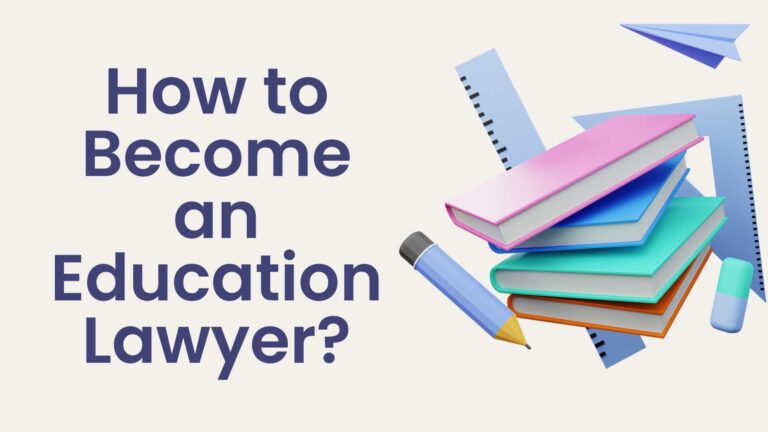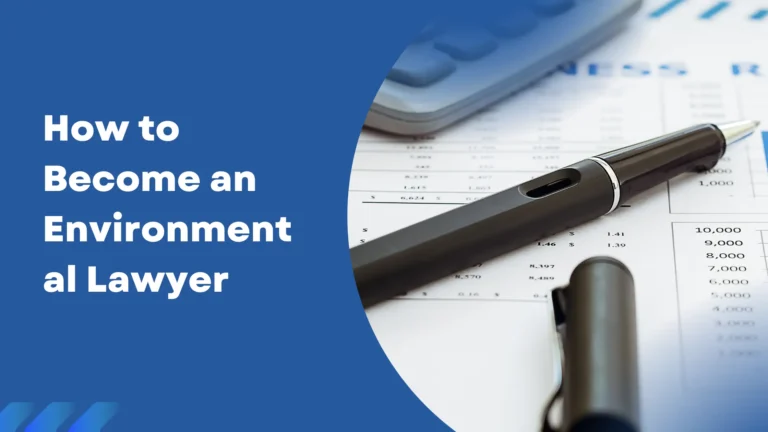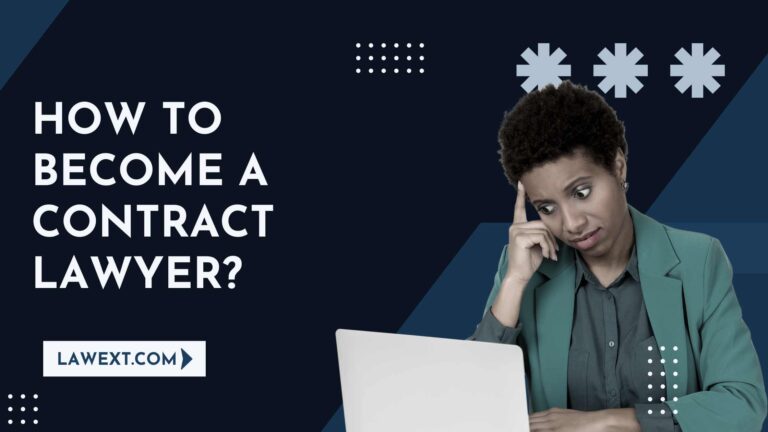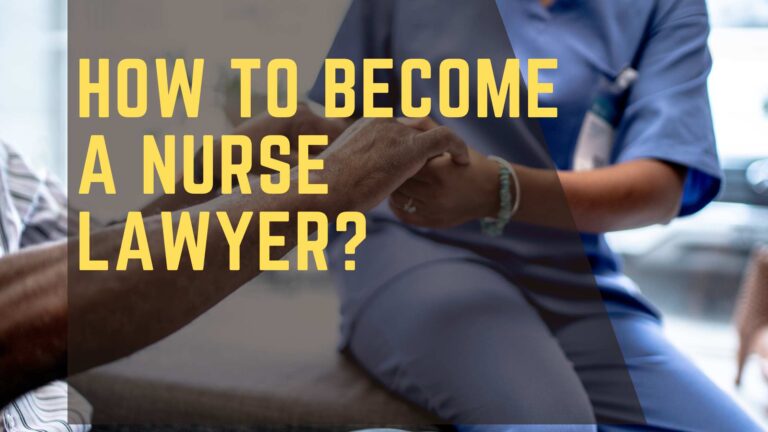What Disqualifies You from Becoming a Lawyer?
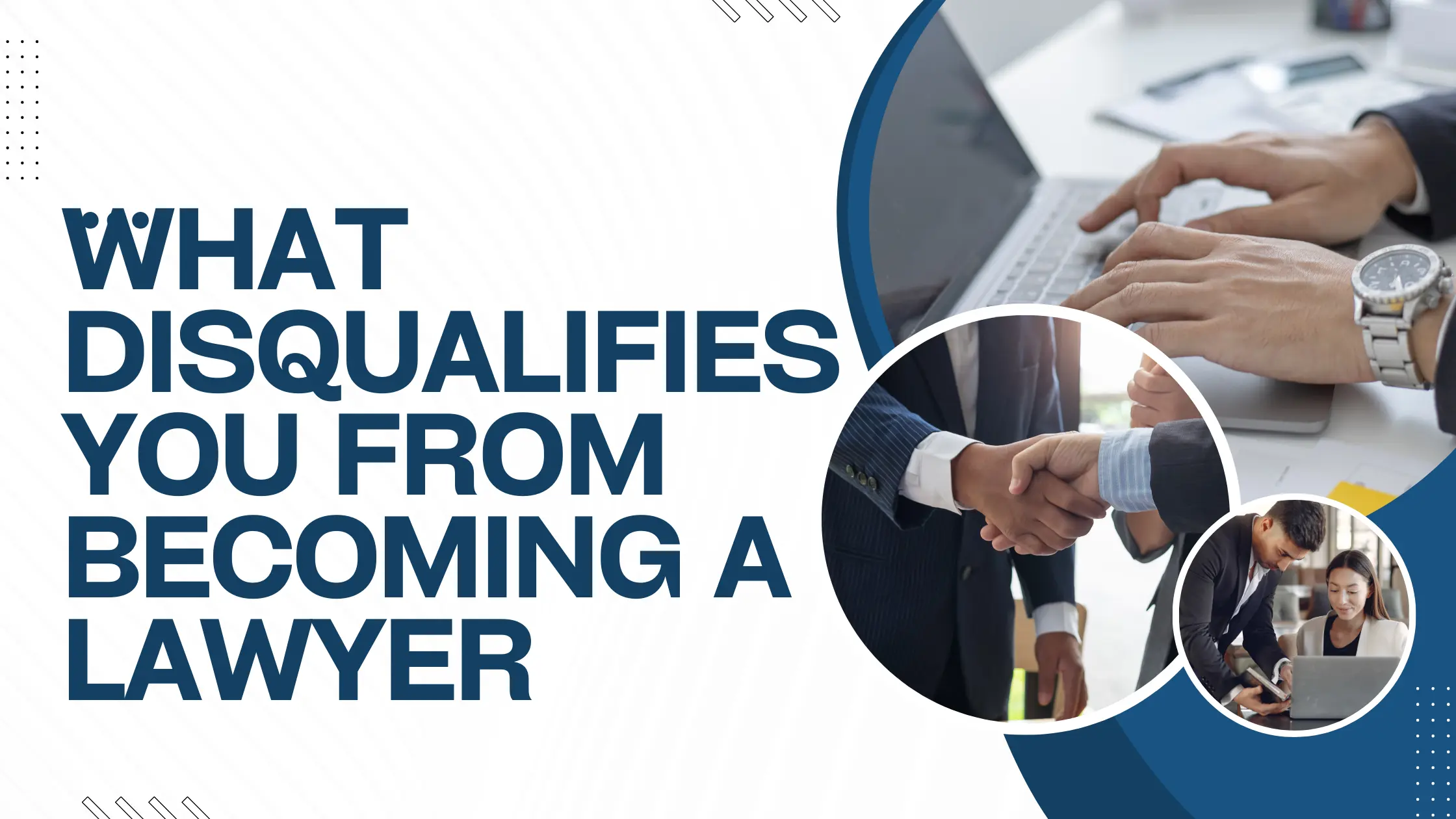
If you’ve been convicted of a serious crime or have committed an act of moral turpitude, you may be disqualified from becoming a lawyer. Becoming a lawyer is a dream for many individuals who seek a career in the legal field.
Table of Contents
However, not everyone is eligible to practice law due to certain disqualifications. To ensure the integrity of the legal profession, there are specific factors that can prevent someone from pursuing a career as a lawyer. These disqualifications include prior criminal convictions, acts of dishonesty or fraud, and unethical behavior that reflects poorly on the individual’s character.
It is essential to understand these disqualifications and their implications before embarking on a path towards becoming a lawyer. So let’s dive into What Disqualifies You from Becoming a Lawyer.
Academic Disqualifications
Academic disqualifications can prevent you from pursuing a career as a lawyer, including failing the bar exam, having a criminal record, or lacking a law degree from an accredited institution. Your educational background and legal standing play a crucial role in becoming a successful lawyer.
Insufficient Gpa
Lackluster academic performance is one of the academic disqualifications that can prevent aspiring individuals from pursuing a career in law. Your grade point average, or GPA, is an important indicator of your academic abilities, and law schools typically have strict GPA requirements for admission. If your GPA falls below the established threshold, it may automatically disqualify you from being considered for law school.
However, it’s crucial to note that an insufficient GPA does not necessarily mean the end of your legal aspirations. While some law schools have stringent GPA requirements, others may take a more holistic approach to the admissions process, considering factors such as personal statements, recommendation letters, and extracurricular activities. Additionally, you can also explore the option of attending a less competitive law school or pursuing alternative paths within the legal profession, such as paralegal or legal assistant roles.
Failure To Pass The Bar Exam
Another significant academic disqualification for becoming a lawyer is the failure to pass the bar exam. The bar exam is a rigorous assessment that evaluates a candidate’s knowledge of the law and their ability to apply legal concepts in practical scenarios. It serves as the final barrier that aspiring lawyers must overcome to gain their license to practice law.
If, unfortunately, you do not pass the bar exam, it may prevent you from obtaining the necessary credentials to become a practicing attorney. The bar exam varies by jurisdiction, with different states having their own specific requirements and passing scores. Therefore, it’s crucial to thoroughly prepare for the exam, invest in study materials, and consider enrolling in bar preparation courses to increase your chances of success.
Furthermore, it’s important to remember that failing the bar exam does not necessarily mean the end of your legal career. While it may require additional effort and perseverance, you can retake the exam after a designated waiting period. Many successful lawyers have faced initial setbacks with the bar exam but ultimately persevered and went on to have successful careers in the legal field.
| Academic Disqualification: | Implications: |
|---|---|
| Insufficient GPA | May disqualify you from law school admission; alternative paths within the legal profession can be pursued. |
| Failure to Pass the Bar Exam | Prevents you from obtaining a law license; the exam can be retaken after a waiting period. |
In conclusion, academic disqualifications can pose significant hurdles on the path to becoming a lawyer. Insufficient GPA and failure to pass the bar exam are just a few examples of the academic challenges individuals may encounter. However, it’s important to remember that these barriers are not insurmountable. With determination, perseverance, and exploring alternative paths within the legal profession, aspiring lawyers can overcome these academic disqualifications and still have a successful career in law.
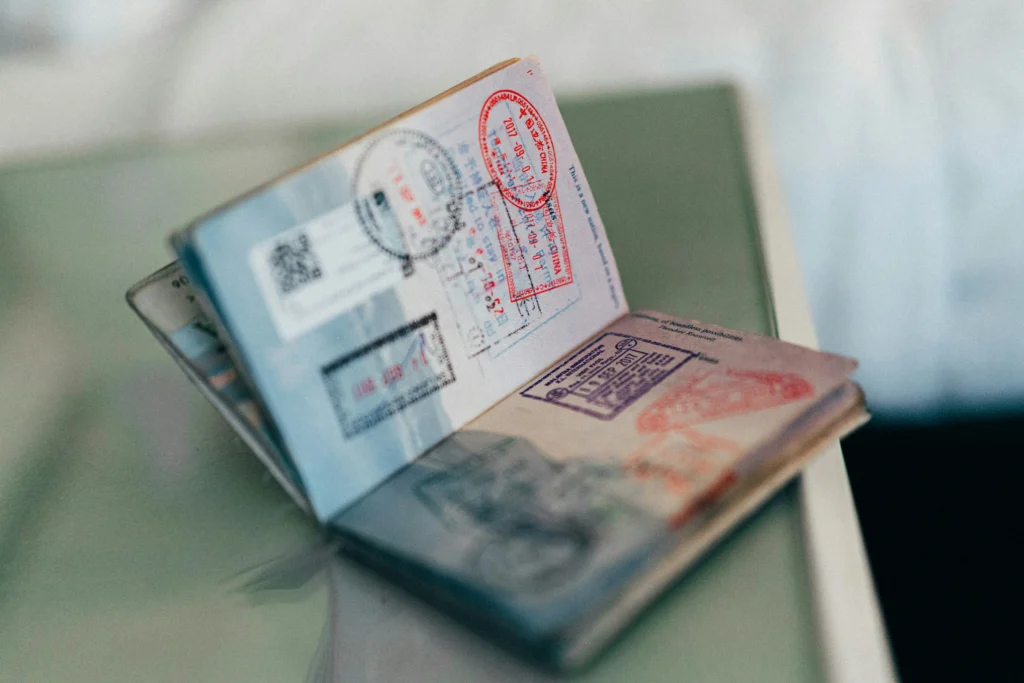
Criminal Convictions
If you aspire to become a lawyer, it is important to be aware of the factors that may disqualify you from pursuing this profession. One such factor is having a criminal conviction on your record. Criminal convictions can have serious implications on your eligibility to practice law, as they can call into question your moral character and ethical judgment. This blog post explores the impact of criminal convictions on your path to becoming a lawyer, with a focus on two key aspects: felony convictions and moral turpitude offenses.
Felony Convictions
Felony convictions carry significant weight when it comes to your suitability for a legal career. A felony is a serious criminal offense that is typically punishable by imprisonment for more than one year. In most jurisdictions, individuals with felony convictions are automatically disqualified from becoming lawyers. This is because felonies are often indicative of a disregard for the law and raise concerns about an individual’s honesty, integrity, and capacity to uphold the legal profession’s ethical standards.
If you have been convicted of a felony, it is crucial to consult the rules and regulations of your jurisdiction to ascertain the specific circumstances that may allow for admission to the bar despite a prior conviction. Some jurisdictions have processes in place that permit individuals with felony convictions to petition for admission, but these cases are evaluated on an individual basis and require strong evidence of rehabilitation and good moral character.
Moral Turpitude Offenses
Moral turpitude offenses encompass a range of offenses involving dishonesty, fraud, or morally reprehensible conduct. These offenses may not necessarily be classified as felonies, but they still carry weight when it comes to your eligibility to become a lawyer. Committed violations of moral turpitude raise concerns about an individual’s integrity, trustworthiness, and ability to uphold the principles of justice.
It is essential to note that different jurisdictions may categorize offenses differently when it comes to matters of moral turpitude. For instance, one jurisdiction may consider a specific offense morally turpitudinous, while another may not. Therefore, it is important to consult the rules and regulations of your jurisdiction to understand the specific offenses that may disqualify you from pursuing a legal career.
Ultimately, criminal convictions, especially felonies and moral turpitude offenses, can prove to be major hurdles in your journey to becoming a lawyer. However, it is worth noting that each case is unique, and the possibility of overcoming these barriers may depend on factors such as the specific offense, your efforts towards rehabilitation, and the jurisdiction’s admission policies. If you find yourself in this situation, it is advisable to seek legal counsel and thoroughly research the regulations in your jurisdiction to understand the options available to you.
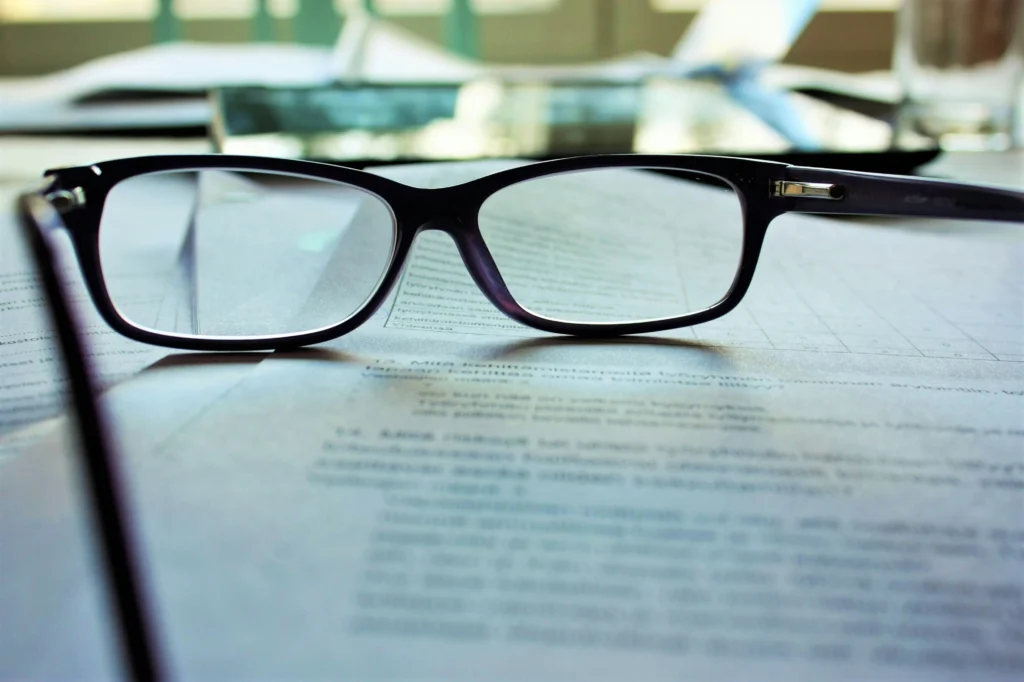
Ethical Violations
Becoming a lawyer is out of reach for those who have committed ethical violations, as they are disqualified from practicing law. These violations can range from fraud and dishonesty to professional misconduct, jeopardizing one’s chances of pursuing a legal career.
When it comes to pursuing a career in law, integrity and ethical conduct are of paramount importance. Any ethical violations can result in serious consequences and potential disqualification from becoming a lawyer. One of the key areas that could disqualify an individual from pursuing a legal profession is engaging in misconduct and unlawful behavior. Let’s delve deeper into these ethical violations that can hinder your path to becoming a lawyer.
Misconduct
Misconduct refers to any actions that breach the ethical standards set for lawyers. It encompasses a wide range of behaviors, including dishonesty, fraud, deceit, and deception. Whether it involves lying under oath or manipulating evidence, engaging in any form of misconduct can have severe implications for your legal career.
Lawyers are entrusted with the duty to uphold justice and the rule of law. Any misconduct undermines this trust and can lead to disciplinary action by the legal regulatory authorities. It could result in penalties such as suspension, disbarment, or even criminal charges.
Engaging In Unlawful Behavior
As legal professionals, lawyers are expected to adhere to the law at all times. Engaging in unlawful behavior, either before or during your pursuit of a legal career, can be grounds for disqualification.
Unlawful behavior encompasses a broad range of actions, including but not limited to criminal activity, engaging in illegal business practices, or any activity that conflicts with the ethical obligations of a lawyer. Some examples include involvement in fraud, money laundering, drug offenses, or any conduct that directly violates legal statutes.
In addition to legal consequences, engaging in unlawful behavior can damage your reputation and credibility as a lawyer. It can also erode the public’s trust in the legal profession as a whole. As such, it is essential to maintain a clean record and uphold the highest ethical standards throughout your career.
Mental Or Physical Health Issues
Certain mental or physical health issues may disqualify an individual from becoming a lawyer. These issues can impact one’s ability to perform essential tasks, such as conducting research, analyzing information, and representing clients effectively. It is important for aspiring lawyers to consider their health conditions before pursuing a career in law.
Substance Abuse Problems
Substance abuse problems can jeopardize your chances of becoming a lawyer. The legal profession requires individuals to be mentally and physically fit, and substance abuse issues can indicate a lack of discipline, judgment, and ethical behavior. If you have a history of drug or alcohol addiction, it may disqualify you from becoming a lawyer. It is essential to prioritize your health and seek the necessary help to overcome substance abuse problems before pursuing a legal career.
Mental Illness
Mental illness is another factor that can disqualify you from becoming a lawyer. While having a mental illness does not automatically disqualify you, certain conditions may impact your ability to perform the demanding duties and responsibilities associated with the legal profession. Mental health issues such as severe anxiety disorders, depression, or other conditions that affect cognitive functioning and decision-making abilities may raise concerns about your ability to effectively represent clients and make sound judgments.
Lawyers are entrusted with the responsibility of advocating for their clients’ interests, adhering to strict ethical standards, and making complex legal determinations. Therefore, having a mental illness that impairs your ability to fulfill these demands can raise red flags for legal authorities. It is crucial to seek treatment, manage your mental health effectively, and consult with a legal professional to understand the potential impact of your condition on your career aspirations.
In some cases, disclosing your mental health issues during the application process might be required. This allows the bar authorities to evaluate your fitness to practice law thoroughly. Although mental illness should not be stigmatized, it is important to consider the practical challenges it may pose in the legal profession. Balancing your well-being with the demands of a legal career is crucial to ensuring the best possible outcomes for both yourself and your clients.
Ultimately, when pursuing a legal career, it is important to be honest about any substance abuse problems or mental health issues you may have faced in the past or are currently dealing with. Seeking treatment, demonstrating progress, and maintaining your overall wellness are essential steps towards securing a successful future in the legal field.
Character And Fitness Concerns
- Becoming a lawyer is a goal that many individuals aspire to achieve. However, not everyone is eligible to practice law. One of the key factors that can disqualify someone from becoming a lawyer are character and fitness concerns. These concerns are evaluated by the state bar association to determine if an individual possesses the necessary qualities and ethical standards to be a lawyer. Among the various character and fitness concerns, dishonesty or lack of integrity and financial irresponsibility are two significant factors that can lead to disqualification.
Dishonesty Or Lack Of Integrity
Honesty and integrity are crucial qualities for anyone entering the legal profession. Lawyers are entrusted with protecting the rights and interests of their clients, and any indication of dishonesty or lack of integrity can undermine this trust. Individuals who have engaged in acts such as lying, cheating, or fraud may find themselves disqualified from pursuing a legal career.
Moreover, any criminal convictions related to dishonesty, such as perjury or forgery, can significantly impact an individual’s chances of becoming a lawyer. The state bar association thoroughly evaluates an applicant’s background, including conducting a character investigation and reviewing criminal records to identify any patterns of dishonesty. It is essential for aspiring lawyers to maintain an impeccable record of honesty and integrity throughout their lives.
Financial Irresponsibility
While financial irresponsibility might not seem directly related to one’s ability to practice law, it can still be a disqualifying factor. Lawyers often handle clients’ finances, and any concerns surrounding an individual’s own financial practices can call into question their ability to manage and safeguard the assets of others.
When evaluating an applicant’s financial responsibility, the State Bar Association typically considers factors such as bankruptcy filings, foreclosure proceedings, or a consistent history of unpaid debts. These indicators suggest a lack of financial stability and may raise concerns about an individual’s ability to handle their own finances, let alone the financial affairs of clients.
Aspiring lawyers need to demonstrate financial responsibility by promptly paying debts, managing financial obligations, and being transparent about any past financial difficulties. Taking proactive steps to address and resolve any financial issues can help mitigate potential disqualifications.
Conclusion
Several disqualifications could prevent someone from becoming a lawyer. These include a criminal record, unethical behavior, mental health issues, inadequate academic qualifications, and a lack of good character. It’s important to be aware of these factors before pursuing a career in law, as they can significantly impact your eligibility and professional reputation.
Stay focused, committed, and dedicated to achieving your legal goals while maintaining a strong ethical foundation.
Introducing Jonah Plum, a legal luminary whose journey through the corridors of justice has been intertwined with the eloquence of the written word. Born and raised in the vibrant city of Seattle, Washington, Jonah's early fascination with language and debate laid the foundation for a remarkable career in law.
Jonah's scholarly odyssey began at Harvard Law School, where they immersed themselves in the study of jurisprudence, honing their analytical prowess and legal acumen. Armed with a law degree, they entered the legal arena, navigating courtrooms and boardrooms with a fervor for justice. Yet, it was the realization of the transformative power of the written word that led Jonah to pivot from legal briefs to the world of blogging.
A digital advocate in the truest sense, Jonah recognized the need for demystifying legal concepts and making them accessible to a broader audience. This blog, a virtual repository of legal insights, transcends geographical boundaries, connecting with a global readership hungry for clarity amidst legal complexities.
Beyond the black letter of the law, Jonah delves into the human stories that underscore the legal landscape. Their writing goes beyond legal analysis, weaving narratives that humanize the law, shedding light on its impact on individuals and society.

